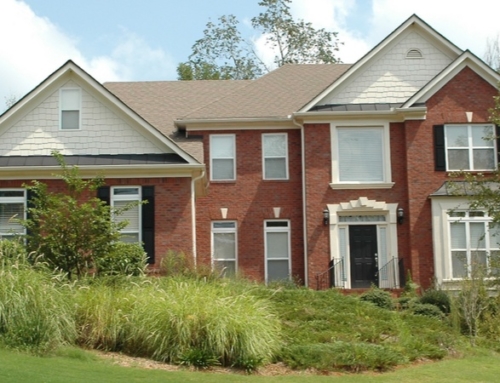As of two weeks ago, I became a statistic.
At the end of 2006, the number of vacant homes for sale had risen to nearly 3 percent, an all-time high. The new construction investment condo I closed on a few weeks ago, and listed last week, just added one more to that number.
It isn’t that I don’t like my condominium. I do. But it’s an investment. And when my partners and I put down our hefty deposit check in 2004, it seemed like a can’t miss proposition: a beautiful building with fabulous views, lots of light, hardwood floors, cherry cabinets, granite countertops and a secure parking space, with a terrific urban, walk-to-everything with great transportation location.
Before we bought, we talked about price points, future sales potential and who would want to live in our condo. Our two bedroom, two-bath unit plus a den is located in a Chicago suburb with a nearby university. Perhaps the buyers would be an empty nester couple who wanted to stay near their friends and family, or a college professor who wanted to walk to work.
So what went wrong? Apparently, everyone else in America had the same great idea at the same time: Real estate prices are rising at double-digit rates, so why not jump in and plunk down some money?
Like I said, it seemed like a great idea at the time. The question for all real estate investors is this: How can you get the property sold without going bankrupt in the process?
For us, it’s going to come down to marketing. Here’s what we’re doing, and how we’re doing it:
-Listing the Unit in our Local MLS. Since the property is a newly-constructed building (actually, some of the top floors are still under construction), we wanted to get the word out to as many local agents and prospective buyers as possible. An agent listed it for us in the local multiple listing service (MLS), but if you decide to your investment property as a FSBO (for sale by owner), there are sites that will allow you to list your property locally.
Choosing to list the property in the MLS means you’ll have to pay a commission (at the very least) to the agent who brings the buyer. Decide upfront how much you’re willing to pay and then make sure to include that information in the listing.
How you write your listing is important as well. Be sure to lead off with the property’s strengths: Bright, sunny, great views, cherry cabinets, granite countertops, plenty of storage, parking for one car. You want the description of the property to be as strong and positive as possible.
-Harness the power of the Internet. More than 85 percent of all home buyers start their search for a home on the Internet. If you’re not there, chances are you’ll miss out on a huge number of prospective buyers who could be looking at your house.
After we closed on our investment condo, I headed over with my digital camera in hand. I took about 20 different shots of the condo, from every angle. We’ll put these photos up on our MLS listing, so that prospective buyers can see them.
We’l also upload the photos to a website we’re creating especially for this property. You&’l be able to view the unit’s floor plan, see the photos in a slide show and get a sense of what the condo looks like. The website will also contain more specific listing information about the unit and the building, and it’ll have our contact information.
We’re also having a video shot of the property, and the surrounding neighborhood. We’ll upload this video to all websites that will take it, like Google and YouTube. You never know where your next buyer is coming from. So, someone who is looking for this kind of condo will be able to find it in an online search.
-Let everyone know you’re selling. While it may be time to sell your investment property, there are two kinds of buyers: someone who might live there as a primary residence or someone who wants to purchase the condo as an investment.
When you start marketing your property, keep in mind that there may be more than one type of buyer and adjust your plans accordingly. If you invest in creating digital pictures, a digital tour or a video of your property, be sure that you can email these images and video to prospective agents or buyers.
Tell everyone you’re selling: Your friends, relatives, neighbors, other residents of the building, your therapist, your doctor, etc. Selling is a little like going on a blind date: The date may not be your soul mate, but he or she has a network of friends and one of those people might be.
We’re just beginning our investment-selling journey. I’m hoping it’ll be short and sweet, but in any case, I’ll be sure to provide some updates as we move into Spring.






Leave A Comment